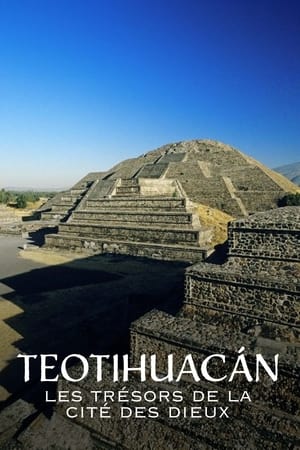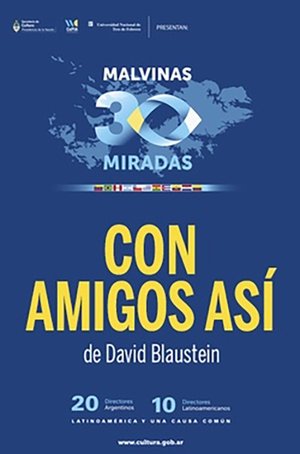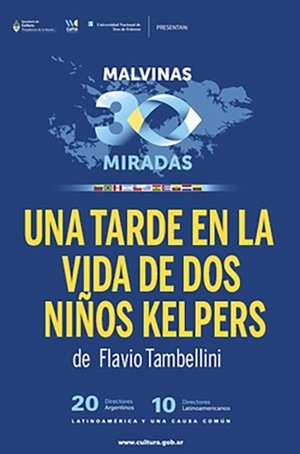
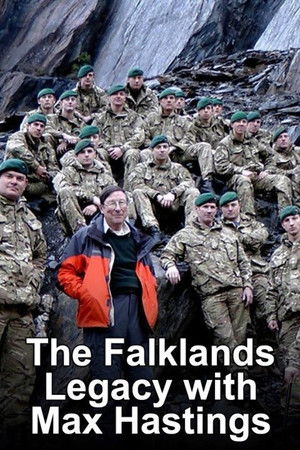
The Falklands Legacy(2012)
Thirty years after the Falkland's War, journalist and military historian Max Hastings explores the conflict's impact and its legacy. Hastings, who sailed with the Task Force in 1982 and reported on the Falklands campaign first-hand, looks at how victory in the South Atlantic revived the reputation of our armed forces and renewed Britain's sense of pride and its image abroad after years of decline as an imperial and military power. Hastings examines how the Falklands provided a model of a swift and successful war that was matched by other conflicts Britain fought at the end of the 20th-century. In contrast, the long campaigns in Iraq and Afghanistan have left the British public sceptical about sending our armed forces in large numbers to war again. The Falklands could well be the last popular war Britain fights, and certainly the country's last imperial hurrah.
Movie: The Falklands Legacy

The Falklands Legacy
HomePage
Overview
Thirty years after the Falkland's War, journalist and military historian Max Hastings explores the conflict's impact and its legacy. Hastings, who sailed with the Task Force in 1982 and reported on the Falklands campaign first-hand, looks at how victory in the South Atlantic revived the reputation of our armed forces and renewed Britain's sense of pride and its image abroad after years of decline as an imperial and military power. Hastings examines how the Falklands provided a model of a swift and successful war that was matched by other conflicts Britain fought at the end of the 20th-century. In contrast, the long campaigns in Iraq and Afghanistan have left the British public sceptical about sending our armed forces in large numbers to war again. The Falklands could well be the last popular war Britain fights, and certainly the country's last imperial hurrah.
Release Date
2012-04-01
Average
4.2
Rating:
2.1 startsTagline
Genres
Languages:
Keywords
Recommendations Movies
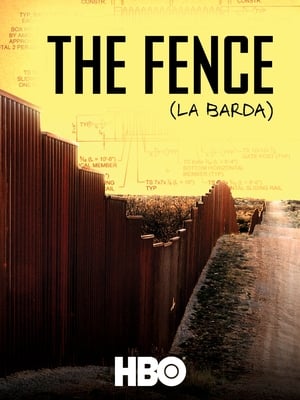 6.9
6.9The Fence (La Barda)(en)
In Oct. 2006, the U.S. government decided to build a 700-mile fence along its troubled 2000-mile-plus border with Mexico. Three years, 19 construction companies, 350 engineers, thousands of construction workers, tens of thousands of tons of metal and $3 billion later, was it all worth it? When Arizona recently enacted one of the most extreme immigration laws in the country, the Obama administration responded by filing a lawsuit against the state. This dispute was merely the latest symptom of a greater national problem: the lack of a comprehensive, workable U.S. immigration policy. In its place, lawmakers have resorted to a series of half-measures, the most expensive of which — the U.S.-Mexico border fence — extends through the desert 150 miles south of the Arizona state capital.
12(en)
After blowing his professional ballet career, John's only way to redeem himself is to concoct the demise of his former partner, Leah, who he blames for his downfall; he rehearses his salvation in his mind in the way that he rehearses a dance, but being able to break from the routine will be the key to his success.
 4.8
4.8Amor de hombre(es)
Set in Madrid, Spain, this engaging comedy chronicles the complex relationship between single female Esperanza, who can't buy a date, and her best friend Ramón, a gay divorce attorney whose bed is never empty. The pair's friendship is put to the test when Esperanza introduces Ramón to her fellow teacher -- who soon sends Ramón's life spinning out of control.
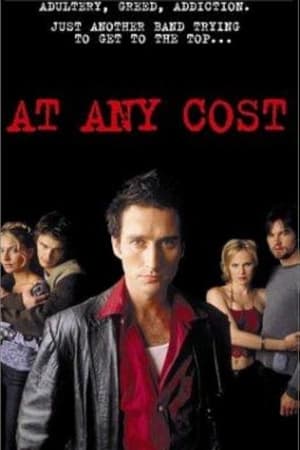 5.0
5.0At Any Cost(en)
Two brothers and their best friend start a rock band and try to make it big in Los Angeles.
 10.0
10.0Sometimes They Sing(en)
The film is a (reflection) of the pressure of isolation, idleness, miscommunication, romance. Shot during Covid-19 lockdowns, a time which deeply strained the fabric of our existence, and forced us to face ourselves in the most unimaginable ways. They take advantage of the physical expression built into both of their respective artistic practices - the piece was originally crafted as a dance film and cut to become a more naturalistic, lulling and subtle piece of physicality and movement. They use Sometimes They Sing explore the visceral dreams which sought to replace a reality without stimulus, dreams which brought us both peace and fear during some of the longest months of our lives and in their case, brought them the stimuli to create this very film.
 4.8
4.8Pai Brothers(ml)
Brothers Ganapathi Pai and Ananda Pai fall for a young stenographer they hire for their company. However, they are in trouble when they learn that she has ulterior motives.
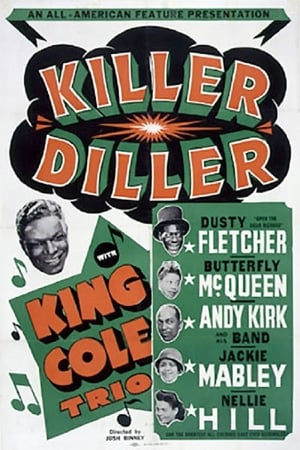 4.9
4.9Killer Diller(en)
An all-Black comedy and dance revue with stars of stage and screen.
 4.0
4.0Rude to Love(ja)
Momoko, an elegant housewife, meticulously maintains her home and attends to her husband, but her devoted care masks an emotional rift between them that blurs the line between love and obsession.
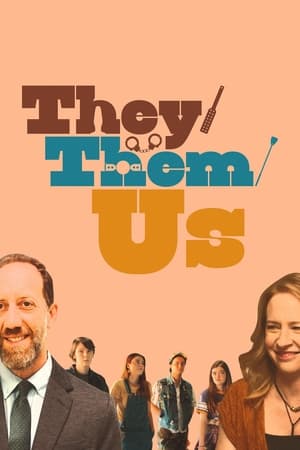 3.7
3.7They/Them/Us(en)
Charlie and Lisa, two divorced parents in their 40's who find themselves at a midlife crossroads. Both are single parents and they have four complicated teenagers.
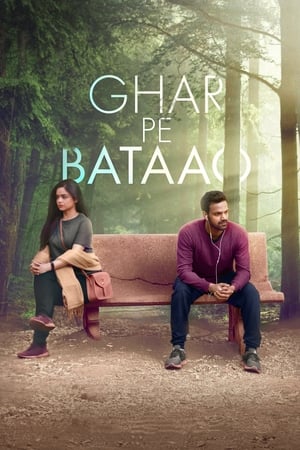 6.0
6.0Ghar Pe Bataao(hi)
After 5 years of their relationship, the girl struggles to convince the boy to apprise his parents about them. The boy seems to be dithering and stalling because he is aware the full weight of an inter faith marriage would do to his parents. But the girl has made up her mind. It's now or never and she will push through.
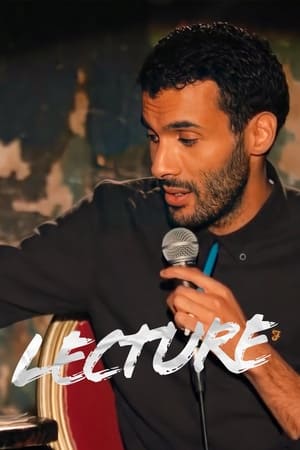 6.7
6.7Mustapha El Atrassi - Lecture(fr)
Mustapha El Atrassi gives us a raw and uncompromising show.
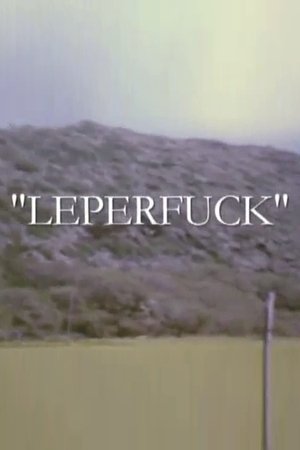 4.7
4.7Leperfuck(en)
A drama about love, loss, and memory for the gorehound crowd. A married woman in 1940's pre-war America must make a difficult decision upon her return home from a missionary position.
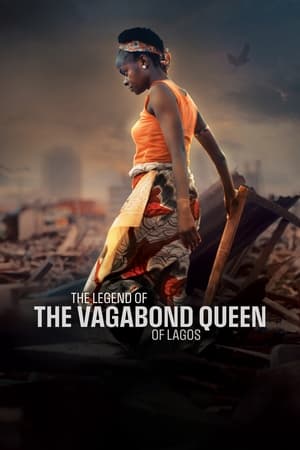 6.0
6.0The Legend of the Vagabond Queen of Lagos(en)
Jawu bears the mark of a warrior king but lives humbly, selling swallows at the local market, saving up for the better future she’s determined to build for herself and her son. The pair reside in the Agbojedo community, a floating slum planted in the lagoon that gives Lagos its name. Just as rumours begin circulating regarding government plans for new developments that would raze their homes, Jawu spies a corrupt politician burying a nest egg of cash. Struck by her good fortune, she takes the money for herself, thinking this might be her way out. Jawu doesn’t know that she is destined for a bigger battle that is yet to come.
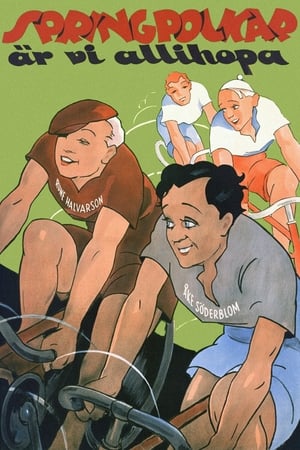 6.0
6.0Springpojkar är vi allihopa(sv)
Gugge and Nuffe work at the competing meat wholesalers AB Delikatesser and AB Skånedelikatesser. The two companies compete for a large order and the two will stop at hardly nothing to get the order
Similar Movies
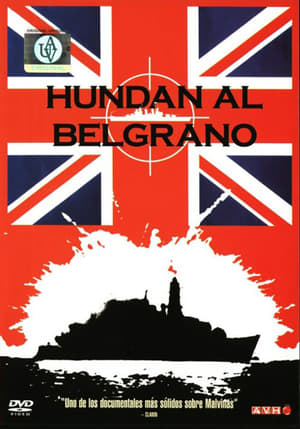 7.5
7.5Rule Britannia(es)
A detailed account of each of the details of the Malvinas War based on interviews, dramatic scenes, maps and other elements of historical roots without ignoring the historical antecedents from the 18th century that ended in this confrontation.
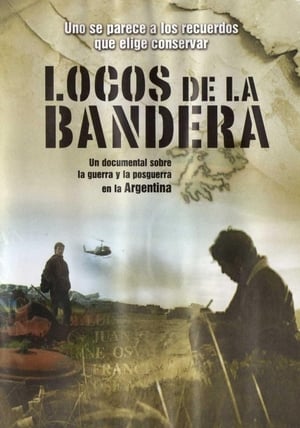 0.0
0.0Locos de la bandera(es)
The story of the relatives of the 649 Argentine fallen in the Malvinas War, who as soon as the military conflict ended, found themselves alone with their pain and prevented from approaching the grave of their loved ones, either because their bodies were left in the Cemetery of Darwin, in the Malvinas, or because they disappeared without being identified.
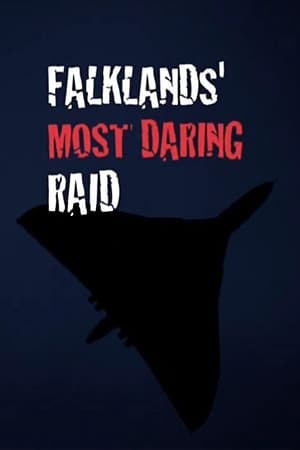 0.0
0.0Falklands' Most Daring Raid(en)
Documentary film about the then longest range bombing mission in history, which changed the outcome of the Falklands War.
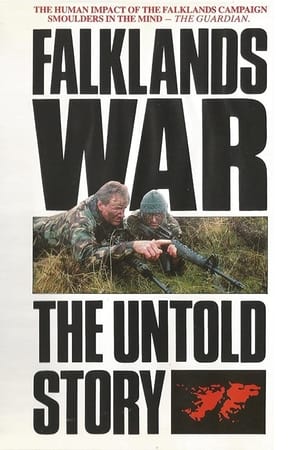 8.0
8.0The Falklands War: The Untold Story(en)
Five years after the war in the Falklands between Britain and Argentina, many facts were still wrapped in red tape. Many of the key figures had remained silent. No-one had been to Argentina to tell the other side of the story. For the majority of the British people, the war was another glorious chapter in their history. With flags waving and bands playing, British troops had sailed away to repel the invaders. Patriotic emotions were stirred as they returned victorious. Government MPs tried to get the film banned, but Yorkshire TV's telephones were jammed with messages of support from wives and mothers of those who died in the conflict. Called 'the documentary to end all documentaries about the Falklands War' in the British press, it was also described as 'more poem than polemic - a hymn against war'.
 0.0
0.0Broken Token(en)
A single female voice sings of waiting in her garden for her ‘dark-eyed sailor’ to return from war, bearing the other half of their token, a gimmel ring. Three veterans pass on the road as she waits, and she asks them: “When you were fighting in distant lands, did you think of the home you left?” In reply the veterans relate their recollections. The garden images in the accompanying film represent ‘home’, but also stand for a more general possibility of redemption, of the potential of the past to return at any time, disguised and changed, to renew the present: “Each moment of time is a garden gate,” the song goes, “Through it my love may walk.”
The Exact Shape of The Islands(es)
For many, the name Malvinas/Falklands evokes an absurd war between England and Argentina in 1982. For Julieta Vitullo, the protagonist of this film, this tragic history becomes deeply personal 25 years later when she suffers a loss associated with her search to uncover that past, unfolding into a life-affirming struggle for renewal and rebirth. This film tells the story of two trips, one made in 2006 and the other in 2010. In the space between one trip and the next, between past and present, between the public and the private, between what can and cannot be told, the movie reflects on the possibilities of conveying extreme life experiences, presenting landscapes and sounds that suggest subtle contours of that shape, 'The Exact Shape of the Islands.'
Olympus vacuum(es)
A powerful Argentine political film stands on the figure of an outsider intellectual, Sebreli, but manages to transcend it, he becomes a touchstone to go through Argentina and its dilemmas, through this country that is proud of almost everything it should be ashamed of. From national icons like Gardel, Evita, Che, and Maradona the film dialogs with recent Argentine history and it does so with extraordinary energy, supported by a rarely seen use of all kinds of archive material in an almost Dionysian state of sampleadelia. The film arrives to a surprising reflection on nationalism, demagogic governments and delusions of unanimity; problems that are common to emerging societies that cannot find their ways to a freer and more egalitarian society.
The Falklands War(en)
The Falklands War - A Military History. It is over twenty years since Argentine forces invaded the Falkland Islands. Within three days, a British task force had been mobilised and was on its way to the South Atlantic on a mission to restore the islands to British control. Soon, harrowing images that demonstrated the terrible realities of war were being beamed back to the United Kingdom. This twentieth anniversary commemorative programme is a powerful record of a war that cost more than a thousand lives. It features remarkable archive footage of the fight for the Falkland Islands, atmospheric battle reconstructions and 3D animated graphics that provide a unique perspective on famous battles such as Goose Green, Tumbledown Mountain and Wireless Ridge. ‘The Falklands War’ also features the memories and recollections of British and Argentine servicemen who went to war in the South Atlantic more than twenty years ago.
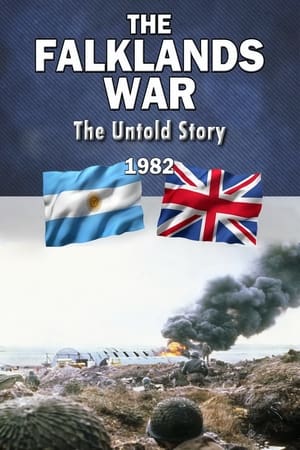 5.5
5.5Falklands War: The Untold Story(en)
On the 40th anniversary of the conflict, senior commanders and ground troops reveal how a series of mistakes nearly cost Britain its hard-won victory over Argentina in the South Atlantic.
The Sinking of the Belgrano(en)
During the Falklands war England's attack on the ARA Belgrano outside of the conflict zone is reviewed 20 years later by a team of National Geographic hoping to find the ship and shed more light into what happened that night.
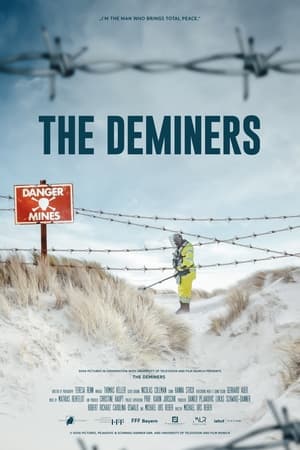 0.0
0.0The Deminers(en)
Zimbabwean landmine clearers Shame and Cosimas, as well as medic Previous have been traveling to the other side of the world for years to clear mines in the British Falkland Islands. In the subpolar cold, between sand dunes and penguins, they defuse and blow up the legacies of a forgotten war.
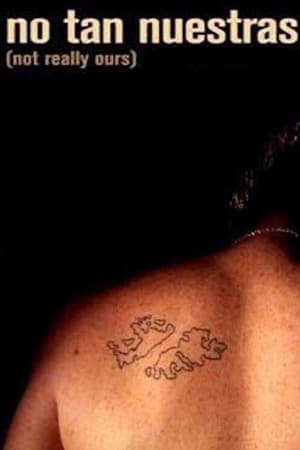 6.5
6.5No tan nuestras(es)
The Falklands/Malvinas War has proved a powerful motif in contemporary Argentine film-making and Ramiro Longo's new documentary offers a unique take on the conflict and its pervasive legacy. While Argentina suffered 649 casualties during the War, subsequently over 350 ex-servicemen have committed suicide while attempting to come to terms with civilian life in the aftermath of the 1982 defeat. Longo's film is structured around an extended interview with War veteran Sergio Delgado who provides a moving testimony on the conflict and the ways in which it has subsequently haunted his life and aspirations. As much an insider's view of the conflict as a tale of the legacy of trauma, Not Really Ours offers a reflection on memory, fear and the shaping of a nation's psyche. Longo's deft editing juxtaposes telling footage alongside Delgado's story. The result is both a moving tapestry of war and its scars and a telling reflection on the ways in which official history is constructed.
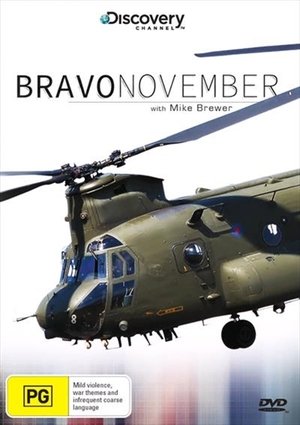 0.0
0.0Bravo November(en)
Mike Brewer sets off on a journey of discovery to find out the story of one of the most remarkable aircraft in the British Armed Forces: a Chinook helicopter code named Bravo November. By doing so he examines the invaluable contribution that these helicopters have made to campaigns from the Falklands War to modern day British Military service over the past thirty years.
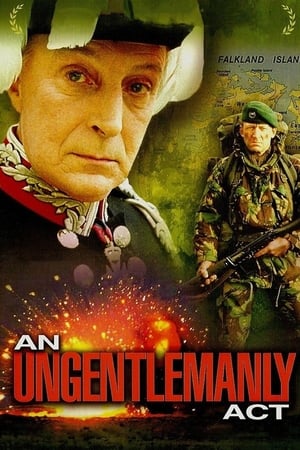 5.5
5.5An Ungentlemanly Act(en)
Based on actual accounts, this film portrays the days and hours before and during the invasion of the Falkland Islands by Argentina, which eventually lead to the Falklands War. As the Argentine forces land on the main island and make their way towards Government House, the handful of British defenders batten down the hatches and prepare to defend Governor Rex Hunt, his family, and their fellow islanders from the invaders.
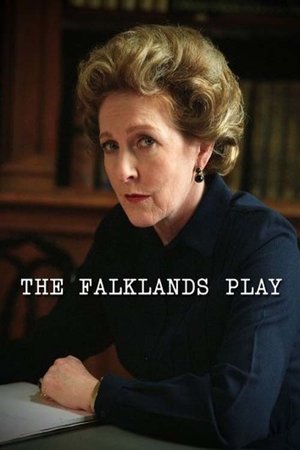 7.4
7.4The Falklands Play(en)
The Falklands Play is a dramatic account of the political events leading up to, and including, the 1982 Falklands War. The play was written by Ian Curteis, an experienced writer who had started his television career in drama, but had increasingly come to specialise in dramatic reconstructions of history. It was originally commissioned by the BBC in 1983, for production and broadcast in 1986, but was subsequently shelved by Controller of BBC One Michael Grade due to its alleged pro-Margaret Thatcher stance and jingoistic tone. This prompted a press furore over media bias and censorship.The play was not staged until 2002, when it was broadcast in separate adaptations on BBC Television and Radio.
 7.5
7.5This Is England(en)
A story about a troubled boy growing up in England, set in 1983. He comes across a few skinheads on his way home from school, after a fight. They become his new best friends, even like family. Based on experiences of director Shane Meadows.


